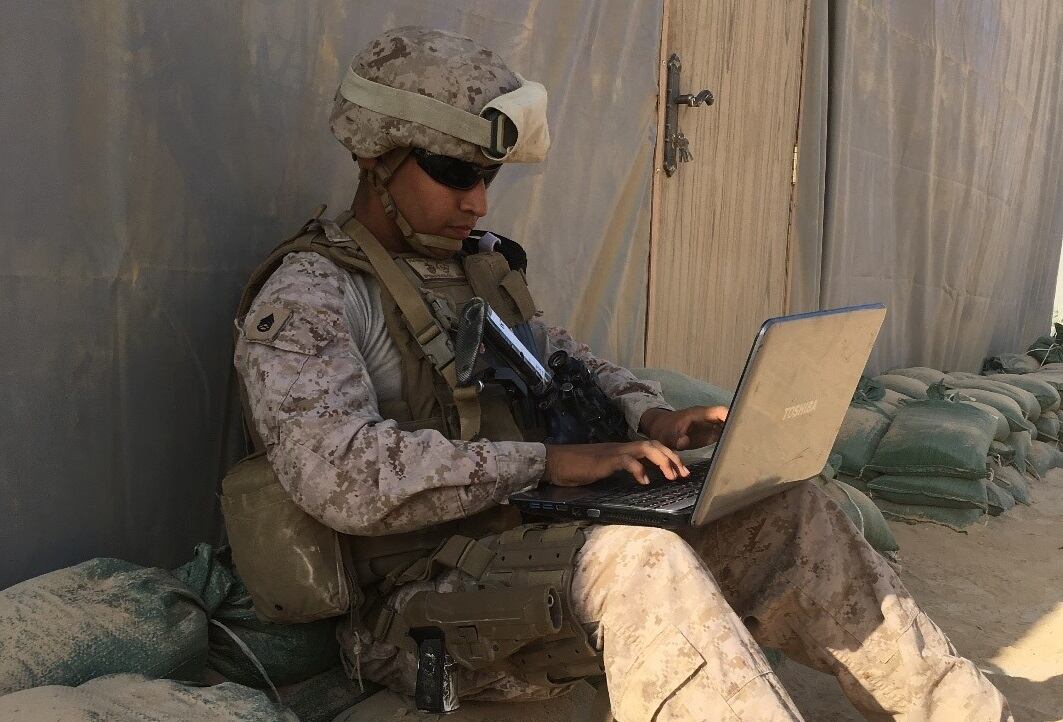The Marine Corps overhauled the Commandant’s Reading List in 2020 in a modernization effort to become more relevant to the modern-day Marine.
As part of the process, the Corps, for the first time, included two books about the experience of women in war: “Women at War: Iraq, Afghanistan, and Other Conflicts,” by James E. Wise Jr. and Scott Baron, and “Hesitation Kills: A Female Marine Officer’s Combat Experience in Iraq,” by Jane Blair.
The inclusion of two books about women in the Marine Corps was seen by many as progress, but some noted that since one of the books was written by two men, that the Marine Corps stumbled on its execution.
“I am excited because I will take progress any day,” Tracy Crow, the co-author of “It’s My Country Too: Women’s Military Stories from the American Revolution to Afghanistan Illustrated Edition,” told Marine Corps Times. “But I mean if we’re going to look at reality to be jumping up and down and thrilled because of one book and then a history that’s been thrown in there, written by men filtered by men … when there’s an alternative by women ... the bar is so low."
RELATED

The book “Women at War” is a compilation of interviews from thirty female American veterans of the Iraq and Afghanistan wars.
“It’s not that men necessarily write bad books, it’s just that women understand our experiences with military service in a unique way,” said Jerri Bell, Navy veteran and co-author of, “It’s My Country Too."
Bell’s and Crow’s complaints about the list were echoed by other veterans and authors.
“It’s admirable that someone finally allowed women into the Commandant’s reading list club,” Kate Germano, a Marine veteran told Marine Corps Times in an email. “But wouldn’t it be enlightening to read about the real, day to day, lived experiences of current day women Marines as told by women Marine authors to help shape policies and the culture rather than reading about it in yet another academic study after stuff blows up?”
While in the Corps, Germano served in Marine Corps recruiting and was the commander of the all-female 4th Recruit Training Battalion on Parris Island, South Carolina. She was relieved of her command of the training battalion in 2015 for having a “hostile, unprofessional and abusive” command.
Germano has defended her leadership of the battalion and since authored the book, “Fight like a Girl,” about her experience in command and the systemic gender bias involved in Marine Corps recruit training.
Since Germano retired, the Corps has implemented some of her then-controversial training methods.
“We need more stories from more perspectives because that’s what’s going to allow the Marine Corps to continue evolving,” Teresa Fazio, Marine veteran and author of “Fidelis,” told Marine Corps Times.
Anuradha Bhagwati, Marine veteran and author of “Unbecoming, a Memoir of Disobedience,” said the biggest issue with the list was not necessarily its lack of women authors or books about women in the Marine Corps, but the list’s inability to deal with the cultural upheaval of our time.
“If misogyny and racism are still very much at the core of Marine Corps culture, why wouldn’t half of those books be about dealing with misogyny and racism in the United States, or overseas?” she asked.
If the list wants to remain focused on the military, Bell said, there are plenty of voices of veterans that still need to be heard.
The Marine Corps acknowledges that there are plenty of authors with valuable lessons for Marines, and plans to update the list more frequently than it had in the past.
“The CMC professional reading program will update the reading list twice per year, which will enable a greater variety of authors to be included,” Stephenson said.
“The committee’s primary focus is on the content of the material and providing Marines with resources to advance their professional knowledge,” Capt. Sam Stephenson, a Marine Corps spokesman told Marine Corps Times, in a late October email.
The website hosting the Commandant’s reading list has a form and email available for anyone seeking to recommend specific books.
The inclusion of the two books comes as Marine Corps Commandant Gen. David Berger calls for increased gender diversity in the ranks and for more women to enter the jobs once denied to them based on their gender.
For Kyleanne Hunter, Marine veteran and adjunct senior fellow, military, veterans and society program, the list is just another sign that the commandant is addressing gender diversity in a way that will outlast his tenure as the top Devil Dog.
The reading list “is a big deal because it’s out there and it lasts," she said. "That gives hope that this will actually be lasting meaningful change, not just a one-off.”
In addition to the two books on women in the Marine Corps, the list includes a total of seven books authored or co-authored by women.
“It appears that progress is being made under current Marine Corps leadership that we haven’t always seen in the past,” Kayla Williams, Army veteran and senior fellow and director of the military, veterans and society program at the Center for New American Security, said in a phone interview.





